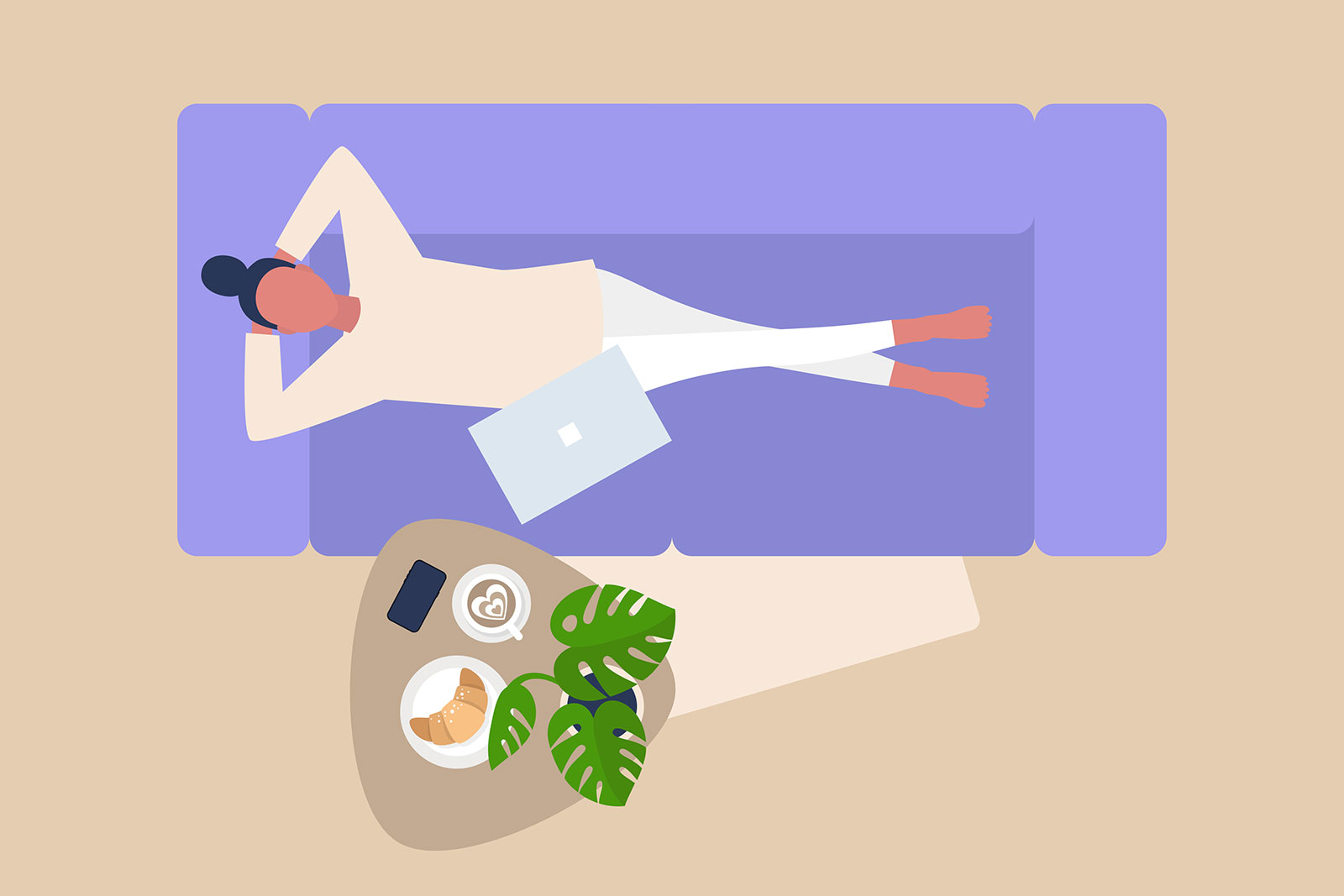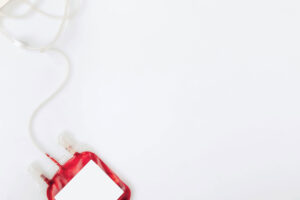Rest is essential yet often underutilized in the full picture of fitness, health and happiness. Medical researchers agree that downtime is key to optimal well-being: move, rest, repeat. However, because we are not taught—or culturally encouraged—to rest, actually doing so can pose a challenge. Many struggle with internal guilt or pressure to do something “productive,” as the value of an activity is often narrowly measured by its relation to productivity. Rest is not frivolous, nor must it be “earned;” it is a necessity, a right and a deeply beneficial practice.
As any cancer warrior knows, rest is critical during active treatment—and its importance extends to your workout routine, too. Simply put, rest supports the benefits of physical activity and brings us closer to the goal of health: feeling good.
Exercise improves fitness (defined as the state of being physically healthy, which is subjective and different for each individual’s capabilities and desires) through a cycle of damage and repair. Physical activity creates metabolic and mechanical stress, triggering regenerative processes that lead to greater strength and endurance. When we rest, our bodies can focus on repair.
As Dr. Jonathan M. Peake, researcher and lecturer at Queensland University of Technology, states, “The general goals for post-exercise recovery are to restore homeostasis, replace fuels and fluids, repair the body’s tissues and rest.” Post-workout soreness—believed to be the result of muscular micro-tears created during exercise—is an important signal that your body needs to recover. Rest gives your muscles time to rebuild, preventing further strain and potential injury.
Glycogen is an energy source stored in muscles that your body depletes during workouts and must be replenished before you can safely exercise again. Exercising with inadequate glycogen levels is associated with an increase in cortisol—the havoc-wreaking stress hormone—which can impair the immune system.
“The rewards of rest go further than fitness.”
The amount of rest required to recover varies; it depends on the intensity of your workout, considerations for concurrent health conditions and other individual needs. Recovery can take anywhere from a good night’s sleep to a few days (or more, if necessary). Generally speaking, a hearty meal and some leisure time will do the trick. Don’t push yourself to recover faster—instead, listen to your body and find what feels good.
The rewards of rest go further than fitness. A 2018 study in the journal Frontiers in Psychology found that those who sleep well self-reported greater satisfaction with life. Of course, this doesn’t guarantee happiness through sleep alone—but it does support the concept that prioritizing rest can have a positive impact on your overall sense of well-being.
Rest allows us to embody our life’s purpose in a way where we are present to that purpose and able to be present.
There is a widespread mistaken belief that rest signifies laziness and that there’s something fundamentally wrong with doing nothing. We’re in dire need of a new outlook, one that champions rest for the sake of rest. A growing number of folks are changing this narrative, including The Nap Ministry, an organization that examines the liberating power of naps and rest as a radical tool for community healing.
Another trailblazer in the rest revolution is Thérèse Cator, an embodiment practitioner, leadership coach, artist and founder of Embodied Black Girl, a space for the embodied healing and liberation of Black women and women of color. Cator suggests a different view on the purpose of rest, stating, “What we have to recognize is that rest is a form of rejuvenation for our bodies. Rest is life. It’s a resource and it resources us.”
One key benefit, she explains, is an opportunity to be fully in the moment: “Rest allows us to embody our life’s purpose in a way where we are present to that purpose and able to be present.”
However, there are very real challenges that get in the way of resting. Caring for loved ones, going through treatment, working one (or more!) jobs to make ends meet and other real-world responsibilities create obstacles. “Rest is a privilege, when it shouldn’t be,” Cator says.
Giving ourselves permission to rest can be a challenge, and there’s no shame in that. “It’s important to normalize that many of us have struggled with giving ourselves permission,” Cator says, “There’s nothing wrong with having that struggle. We live in racialized capitalism, where productivity reigns supreme. It’s very individualistic.”
Cator goes on to explain that it’s understandable why we’d struggle this way—but there’s hope. “We live in a culture that doesn’t give us permission to rest,” she says. “When we start to make the connection that this is not just an individual problem—that it’s systemic and has broader impacts on our culture—then we can stop carrying all the weight on our shoulders. When we’re able to see that, it creates an opening so we can begin to give ourselves permission to rest.”
There are steps we can take toward creating a life that supports rest. Cator suggests looking at your month and finding time to rest on a weekly basis, rather than treating rest as a distant future. She also highlights the role community care can play in enabling time for rest.
“Rest is a privilege, when it shouldn’t be.”
“If there’s a way to get community involved in making rest possible for you, that would be a wonderful thing,” she says. Try finding helping hands to watch the kids or tend to other pressing responsibilities so you can take five (and be sure to return the favor when possible!).
The kind of rest you get matters, too. One 2016 study published by researchers at the University of Illinois at Urbana-Champaign and George Mason University followed close to a hundred Korean office workers and the quality of breaks they took throughout the work day. They found that restful activities categorized as relaxing or social—such as daydreaming or chatting with colleagues—actually provided feelings of rejuvenation. Cognitive activities, like reading the news or checking emails, did not. While this study focuses on mental rest, it does illuminate a valuable recommendation: the less you do, the better.
When deciding what you’d like to “do” to rest, ask yourself what you need. A nap? A relaxing bath? Some unstructured daydream time? It may feel unnatural at first, given that we’re so accustomed to always being “on,” but you might find watching birds through the window to be more refreshing than scrolling social media. Surrendering to rest gets easier with practice.
While we continue down our unique paths of wellness and fulfillment, remember this universal advice: take a break or two.







